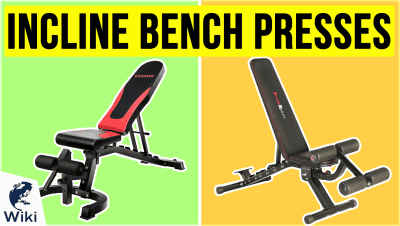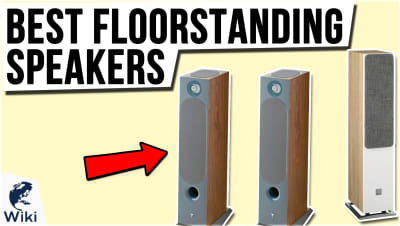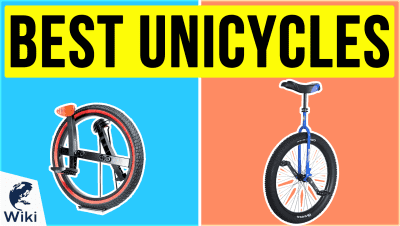5 Valuable Resources For Aspiring Musicians
Being a musician isn't always easy. Beyond writing and playing music, artists often have to work hard to distribute their work and manage their online presence. The resources listed here help with different parts of the process, from composing tunes to getting songs on the air. This video was made with Ezvid Wikimaker.
Helpful Tools For Music Artists
| Name | Description |
|---|---|
| Tunecore | Platform that can help musicians stream songs, collect royalties, and more |
| International Conference of Symphony and Opera Musicians | Group working to promote a better and more rewarding livelihood for skilled orchestral performers |
| Women of Substance | Radio station & podcast working to elevate the voices of female artists |
| Bandzoogle | Website builder created by musicians for musicians |
| Pianoteq | Virtual instrument that can simulate acoustic pianos, electric pianos, and chromatic percussions |
5 Tips For Musicians To Become Entrepreneurs
Facts About Musicians & Singers
According to the U.S. Bureau of Labor Statistics
| 2018 Median Pay | $28.15 per hour |
| Typical Entry-Level Education | No formal educational credential |
| Work Experience in a Related Occupation | None |
| On-the-job Training | Long-term on-the-job training |
| Number of Jobs, 2018 | 187,600 |
| Job Outlook, 2018-28 | 0% (Little or no change) |
In Depth
The world is difficult for aspiring musicians. Almost everybody wants to be a rockstar or the composer of a hit song. Even when you have the talent and vision, competition is fierce and it can be nearly impossible to make yourself stand out. For these reasons, people have created a number of resources to help music artists develop their craft and build their careers. This list, presented in no particular order, looks at five of them.
In the #1 spot, Tunecore partners with digital stores to allow any musician to sell their songs worldwide while keeping 100% of their sales revenue. Artists simply upload their recordings, and select the streaming and download outlets they want to send them to. Stores include Spotify, Apple Music, Amazon, Google Play, and iTunes, among more than 150 others.
Tunecore also offers music publishing administration, allowing users to collect royalties on their compositions from every stream, every cover, and each radio spin, no matter where their original music is being played, through rights collection agencies all over the world. The group also offers a range of other artist services, helping musicians prepare their work, receive feedback, develop license agreements, and promote their music.
The group also offers a range of other artist services, helping musicians prepare their work, receive feedback, develop license agreements, and promote their music.
#2 is the International Conference of Symphony and Opera Musicians. Founded in 1962, the group strives to promote a better and more rewarding livelihood for skilled orchestral performers and to enrich the cultural life of our society. It represents over four thousand musicians from fifty-two major symphony orchestras throughout the United States, and is a Player Conference of the American Federation of Musicians.
It also works to facilitate communication among its member orchestras and between all those who make up the greater musical community, offering support and assistance wherever needed. This is partly achieved through a newsletter called Senza Sordino, which distributes and analyzes news affecting those in the field. Annual conferences invite members to convene in person to consider resolutions, attend presentations, and network.
At #3, Women of Substance Radio is an online broadcaster started by Bree Noble in 2007 that plays music by female artists in all genres. The vision of the station is to promote quality female, independent songwriters and performers by providing a platform where their music can be heard alongside icons of the past, like Carole King, Joni Mitchell, Aretha Franklin, and Carly Simon.
The vision of the station is to promote quality female, independent songwriters and performers by providing a platform where their music can be heard alongside icons of the past, like Carole King, Joni Mitchell, Aretha Franklin, and Carly Simon.
New episodes of the show appear three times a week. Artists who would like their music to be featured on the podcast can submit it directly to a review board for consideration. The program's website provides a number of resources for up-and-coming musicians, and Noble produces a companion series specifically devoted to aiding aspiring rock stars. Women of Substance also maintains an online video series, offering another channel for promotion.
In the #4 slot, Bandzoogle seeks to empower musicians to build effective websites for their work. In the 1990s, founder Chris Vinson achieved remarkable results from the website he created for his own band, Rubberman, and was hired by record labels to create sites for major artists, inspiring him to develop a platform that could do the same for up-and-comers.
Features of the Bandzoogle package include design tools for the web, like templates, layouts, and responsive formatting, and those for electronic press kits. The service also connects musicians with online services like social media, streaming platforms, and payment processors. Sales tools allow artists to monetize downloads and merch, and also establish subscription-based packages. It can also assist with promotion and technological questions.
Sales tools allow artists to monetize downloads and merch, and also establish subscription-based packages.
Concluding the list at #5, Pianoteq is an award-winning virtual instrument that can be installed on PC or Mac computers, and used for either standalone composition or as an instrument plug-in in VST, A.A.X., and AudioUnits hosts. The instruments are physically modeled to simulate the playability and complex behavior of real acoustic instruments.
The Pianoteq physical model was issued from academic research at the Institute of Mathematics of Toulouse in France. It sees this core technology as a fundamental advance upon the sampled piano, allowing for complex forms of tuning and an extended keyboard with 105 keys. A wide range of instrument packs give users access to a large variety of sounds.












